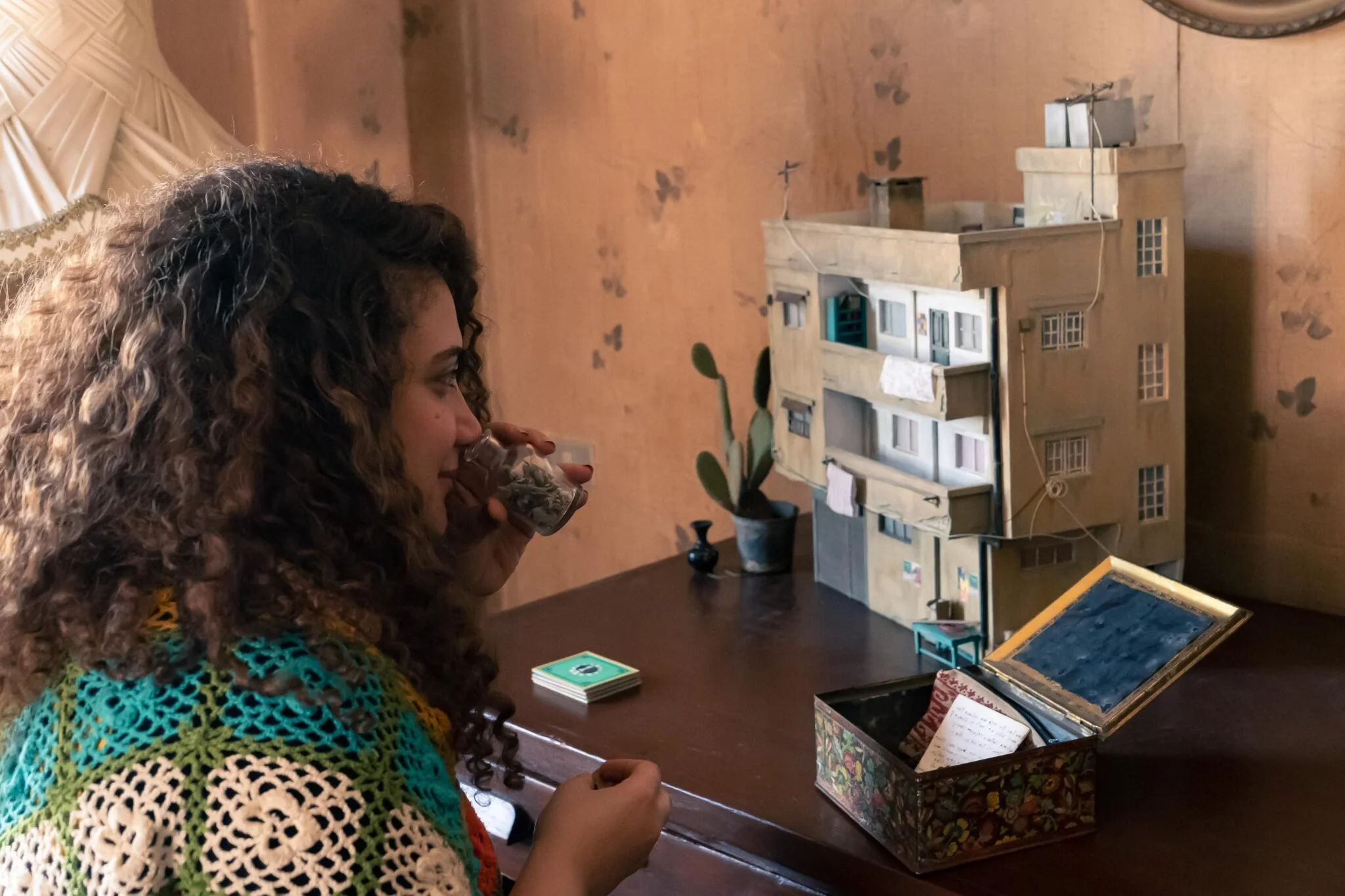Dear Laila re-creates home in a Palestinian refugee camp at the PuSh Festival
Artist Basel Zaraa wants audiences to see how displacement affects people’s everyday lives
Dear Laila.
PuSh Festival, Boca del Lupo, and Pandemic Theatre present Dear Laila from January 20 to February 3 (dark on January 22, 28, and 29) at The Fishbowl on Granville Island
BASEL ZARAA WAS born and raised in a Palestinian refugee camp called Yarmouk in Damascus, Syria, a member of a third generation to call the place home. His grandparents fled their village of Tantura in 1948 after a massacre occurred there during the Arab-Israeli war.
Now based in Birmingham, England, Zaraa started getting questions from his daughter about two years ago, when she was five years old, about where he grew up. His childhood home has since been destroyed as a result of conflict. Since he can never take Laila there, he decided to re-create that environment and bring it to her.
Dear Laila is the result, an interactive installation that will have its Canadian premiere at the 2024 PuSh Festival in a copresentation with Boca del Lupo and Pandemic Theatre.
In Dear Laila, audience members will come upon a miniature model of Zaraa’s former household one at a time for 20 minutes. There and then they can pore over so many everyday objects that represent Zaraa’s heritage, history, family, and longing for home.
First, some history: Yarmouk occupies an area of 2.1 square kilometres to accommodate refugees who were scattering in mosques, schools, and other public places, according to United Nations Relief and Works Agency for Palestine Refugees in the Near East (UNRWA). Over the years, the refugees improved their shelters and added more rooms to them. Before conflict that erupted in 2011 and 2012 in the region with the Arab Spring, the densely populated camp was crowded with cement block homes and resembled an urban quarter. Yarmouk was home to approximately 160,000 Palestinian refugees, making it the largest Palestine refugee community in Syria. To young Zaraa, who left for England in 2010, it was home.
“If I could describe it in a few words it would be ‘full of life’,” Zaraa says of the years in Yarmouk he experienced in a Zoom interview with Stir. “When you’re born as a Palestinian refugee you didn’t choose to be a refugee; you’re forced to be a refugee. We shared one dream: the return to our village in Palestine. Generation after generation, we hold onto that dream.
“The camp was a small city; there was a market and a main street, art centres, a lot of activity for young adults like art and music used in different ways to tell stories,” he says. “Yarmouk camp was full of life, where you would see lots of kids playing in the streets, adults sitting outside their homes chatting, young people walking on the main street, sounds of music and people dancing and singing for someone’s wedding, demonstrations with Palestinian flags flying high in the sky… It was just like any other place except it was called a refugee camp.”
Inside Dear Laila, audience members can open drawers, flip through photo albums, inhale fresh sage, and more. It’s all to show people what daily life once resembled for so many people like Zaraa, families who found hope amid bleakness.
“It’s a story told through a miniature model house representing my family house using different objects that audiences can find and touch and smell and experience,” Zaraa says. “One of the objects is my granny’s prayer beads—wooden beads she was holding when she left Palestine. There is a letter that describes the journey that my grandparents made from Palestine to Syria. There is a key to our home in Tantura. I made it [Dear Laila] for one audience member at a time to let people connect to the story I’m telling and interact with the space and with the objects.”
Among the other items are photos that Zaraa’s father found amid the rubble, images of their immediate family and relatives during relatively “normal” days before the uprising. There is also a nine-minute audio narration describing life in Yarmouk and the beauty and importance of community in the face of so much destruction and displacement.
Laila, who’s now seven years old, has never met members of Zaraa’s family; his siblings are in Sweden and Denmark, and his parents remain in Damascus. When asked about the current Israel-Hamas war in the Gaza Strip, Zaraa says he is deeply saddened.
“You feel like the story is repeating itself every few years,” Zaraa says. “If you look at what is happening in Gaza now, more than 70 percent of people are refugees. People were forced to leave their homes in 1948 and now they’re forced to leave again and they are stuck, living in the open air. It’s a new exile for Palestinians. It feels like the story will never finish. These people are suffering: it continues generation after generation.”
With Dear Laila, Zaraa hopes that people will see a different side of Palestine.
“I hope to tell a story or to make the audience more connected to a story of ordinary people and how they are affected by historical events and how that affects generations through everyday life,” he says. “I’m asking the audience to step into Laila’s shoes and to imagine themselves being in that situation. I’m keeping the memory alive. It’s me trying to introduce my history and my personality to her because I can’t introduce it to her properly.”













